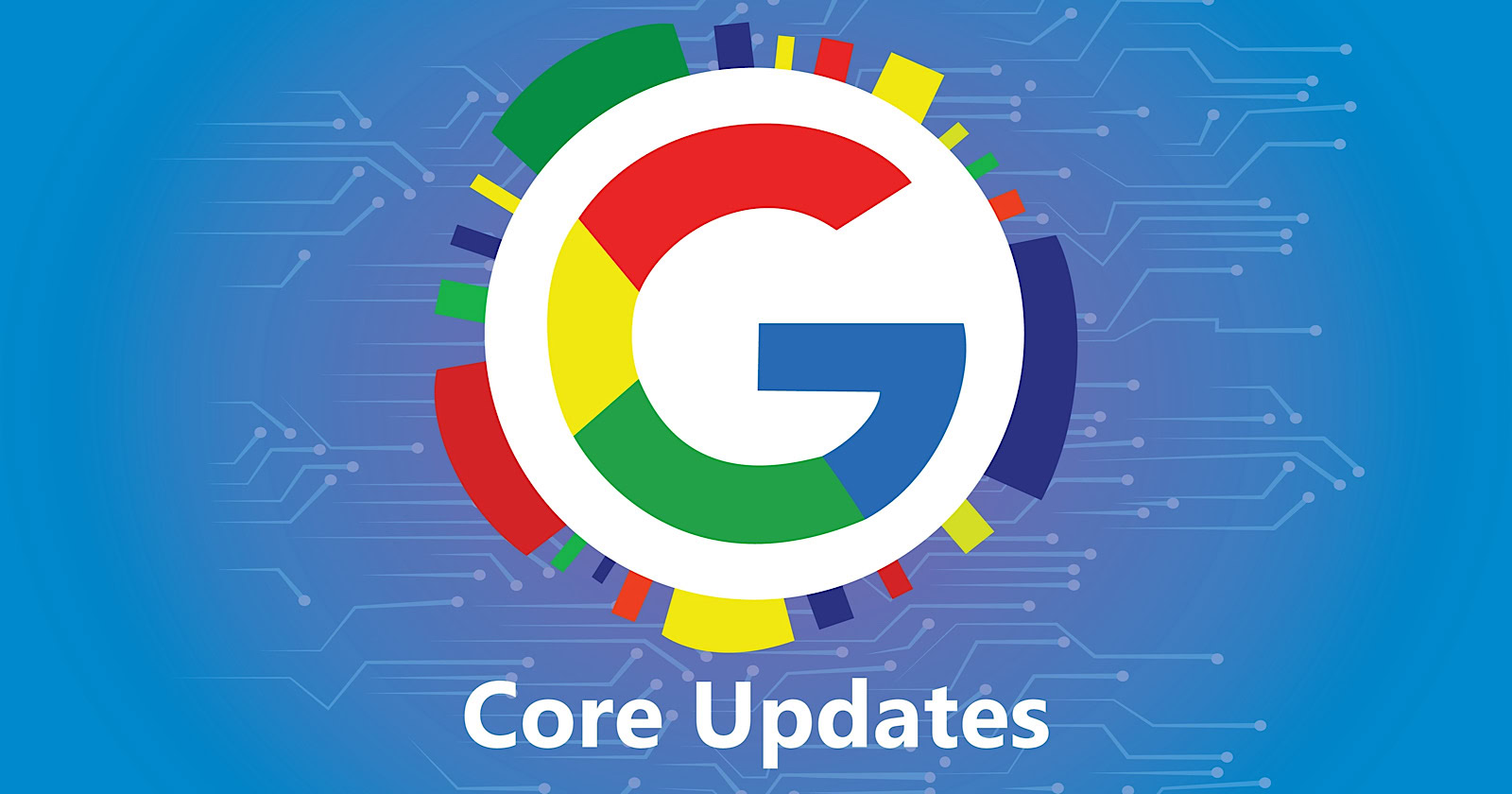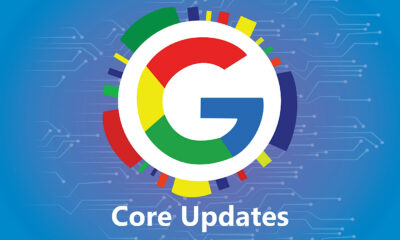SEO
B2B PPC Experts Give Their Take On Google Search On Announcements

Google hosted its 3rd annual Search On event on September 28th.
The event announced numerous Search updates revolving around these key areas:
- Visualization
- Personalization
- Sustainability
After the event, Google’s Ad Liason, Ginny Marvin, hosted a roundtable of PPC experts specifically in the B2B industry to give their thoughts on the announcements, as well as how they may affect B2B. I was able to participate in the roundtable and gained valuable feedback from the industry.
The roundtable of experts comprised of Brad Geddes, Melissa Mackey, Michelle Morgan, Greg Finn, Steph Bin, Michael Henderson, Andrea Cruz Lopez, and myself (Brooke Osmundson).
The Struggle With Images
Some of the updates in Search include browsable search results, larger image assets, and business messages for conversational search.
Brad Geddes, Co-Founder of Adalysis, mentioned “Desktop was never mentioned once.” Others echoed the same sentiment, that many of their B2B clients rely on desktop searches and traffic. With images showing mainly on mobile devices, their B2B clients won’t benefit as much.
Another great point came up about the context of images. While images are great for a user experience, the question reiterated by multiple roundtable members:
- How is a B2B product or B2B service supposed to portray what they do in an image?
Images in search are certainly valuable for verticals such as apparel, automotive, and general eCommerce businesses. But for B2B, they may be left at a disadvantage.
More Uses Cases, Please
Ginny asked the group what they’d like to change or add to an event like Search On.
The overall consensus: both Search On and Google Marketing Live (GML) have become more consumer-focused.
Greg Finn said that the Search On event was about what he expected, but Google Marketing Live feels too broad now and that Google isn’t speaking to advertisers anymore.
Marvin acknowledged and then revealed that Google received feedback that after this year’s GML, the vision felt like it was geared towards a high-level investor.
The group gave a few potential solutions to help fill the current gap of what was announced, and then later how advertisers can take action.
- 30-minute follow-up session on how these relate to advertisers
- Focus less on verticals
- Provide more use cases
Michelle Morgan and Melissa Mackey said that “even just screenshots of a B2B SaaS example” would help them immensely. Providing tangible action items on how to bring this information to clients is key.
Google Product Managers Weigh In
The second half of the roundtable included input from multiple Google Search Product Managers. I started off with a more broad question to Google:
- It seems that Google is becoming a one-stop shop for a user to gather information and make purchases. How should advertisers prepare for this? Will we expect to see lower traffic, higher CPCs to compete for that coveted space?
Cecilia Wong, Global Product Lead of Search Formats, Google, mentioned that while they can’t comment directly on the overall direction, they do focus on Search. Their recommendation:
- Manage assets and images and optimize for best user experience
- For B2B, align your images as a sneak peek of what users can expect on the landing page
However, image assets have tight restrictions on what’s allowed. I followed up by asking if they would be loosening asset restrictions for B2B to use creativity in its image assets.
Google could not comment directly but acknowledged that looser restrictions on image content is a need for B2B advertisers.
Is Value-Based Bidding Worth The Hassle?
The topic of value-based bidding came up after Carlo Buchmann, Product Manager of Smart Bidding, said that they want advertisers to embrace and move towards value-based bidding. While the feedback seemed grim, it opened up for candid conversation.
Melissa Mackey said that while she’s talked to her clients about values-based bidding, none of her clients want to pull the trigger. For B2B, it’s difficult to assess the value on different conversion points.
Further, she stated that clients become fixated on their pipeline information and can end up making it too complicated. To sum up, they’re struggling to translate the value number input to what a sale is actually worth.
Geddes mentioned that some of his more sophisticated clients have moved back to manual bidding because Google doesn’t take all the values and signals to pass back and forth.
Finn closed the conversation with his experience. He emphasized that Google has not brought forth anything about best practices for value-based bidding. By having only one value, it seems like CPA bidding. And when a client has multiple value inputs, Google tends to optimize towards the lower-value conversions – ultimately affecting lead quality.
The Google Search Product Managers closed by providing additional resources to dig into overall best practices to leverage search in the world of automation.
Closing Thoughts
Google made it clear that the future of search is visual. For B2B companies, it may require extra creativity to succeed and compete with the visualization updates.
However, the PPC roundtable experts weighed in that if Google wants advertisers to adopt these features, they need to support advertisers more – especially B2B marketers. With limited time and resources, advertisers big and small are trying to do more with less.
Marketers are relying on Google to make these Search updates relevant to not only the user but the advertisers. Having clearer guides, use cases, and conversations is a great step to bringing back the Google and advertiser collaboration.
A special thank you to Ginny Marvin of Google for making space to hear B2B advertiser feedback, as well as all the PPC experts for weighing in.
Featured image: Shutterstock/T-K-M
SEO
Google March 2024 Core Update Officially Completed A Week Ago

Google has officially completed its March 2024 Core Update, ending over a month of ranking volatility across the web.
However, Google didn’t confirm the rollout’s conclusion on its data anomaly page until April 26—a whole week after the update was completed on April 19.
Many in the SEO community had been speculating for days about whether the turbulent update had wrapped up.
The delayed transparency exemplifies Google’s communication issues with publishers and the need for clarity during core updates
Google March 2024 Core Update Timeline & Status
First announced on March 5, the core algorithm update is complete as of April 19. It took 45 days to complete.
Unlike more routine core refreshes, Google warned this one was more complex.
Google’s documentation reads:
“As this is a complex update, the rollout may take up to a month. It’s likely there will be more fluctuations in rankings than with a regular core update, as different systems get fully updated and reinforce each other.”
The aftershocks were tangible, with some websites reporting losses of over 60% of their organic search traffic, according to data from industry observers.
The ripple effects also led to the deindexing of hundreds of sites that were allegedly violating Google’s guidelines.
Addressing Manipulation Attempts
In its official guidance, Google highlighted the criteria it looks for when targeting link spam and manipulation attempts:
- Creating “low-value content” purely to garner manipulative links and inflate rankings.
- Links intended to boost sites’ rankings artificially, including manipulative outgoing links.
- The “repurposing” of expired domains with radically different content to game search visibility.
The updated guidelines warn:
“Any links that are intended to manipulate rankings in Google Search results may be considered link spam. This includes any behavior that manipulates links to your site or outgoing links from your site.”
John Mueller, a Search Advocate at Google, responded to the turbulence by advising publishers not to make rash changes while the core update was ongoing.
However, he suggested sites could proactively fix issues like unnatural paid links.
“If you have noticed things that are worth improving on your site, I’d go ahead and get things done. The idea is not to make changes just for search engines, right? Your users will be happy if you can make things better even if search engines haven’t updated their view of your site yet.”
Emphasizing Quality Over Links
The core update made notable changes to how Google ranks websites.
Most significantly, Google reduced the importance of links in determining a website’s ranking.
In contrast to the description of links as “an important factor in determining relevancy,” Google’s updated spam policies stripped away the “important” designation, simply calling links “a factor.”
This change aligns with Google’s Gary Illyes’ statements that links aren’t among the top three most influential ranking signals.
Instead, Google is giving more weight to quality, credibility, and substantive content.
Consequently, long-running campaigns favoring low-quality link acquisition and keyword optimizations have been demoted.
With the update complete, SEOs and publishers are left to audit their strategies and websites to ensure alignment with Google’s new perspective on ranking.
Core Update Feedback
Google has opened a ranking feedback form related to this core update.
You can use this form until May 31 to provide feedback to Google’s Search team about any issues noticed after the core update.
While the feedback provided won’t be used to make changes for specific queries or websites, Google says it may help inform general improvements to its search ranking systems for future updates.
Google also updated its help documentation on “Debugging drops in Google Search traffic” to help people understand ranking changes after a core update.
Featured Image: Rohit-Tripathi/Shutterstock
FAQ
After the update, what steps should websites take to align with Google’s new ranking criteria?
After Google’s March 2024 Core Update, websites should:
- Improve the quality, trustworthiness, and depth of their website content.
- Stop heavily focusing on getting as many links as possible and prioritize relevant, high-quality links instead.
- Fix any shady or spam-like SEO tactics on their sites.
- Carefully review their SEO strategies to ensure they follow Google’s new guidelines.
SEO
Google Declares It The “Gemini Era” As Revenue Grows 15%

Alphabet Inc., Google’s parent company, announced its first quarter 2024 financial results today.
While Google reported double-digit growth in key revenue areas, the focus was on its AI developments, dubbed the “Gemini era” by CEO Sundar Pichai.
The Numbers: 15% Revenue Growth, Operating Margins Expand
Alphabet reported Q1 revenues of $80.5 billion, a 15% increase year-over-year, exceeding Wall Street’s projections.
Net income was $23.7 billion, with diluted earnings per share of $1.89. Operating margins expanded to 32%, up from 25% in the prior year.
Ruth Porat, Alphabet’s President and CFO, stated:
“Our strong financial results reflect revenue strength across the company and ongoing efforts to durably reengineer our cost base.”
Google’s core advertising units, such as Search and YouTube, drove growth. Google advertising revenues hit $61.7 billion for the quarter.
The Cloud division also maintained momentum, with revenues of $9.6 billion, up 28% year-over-year.
Pichai highlighted that YouTube and Cloud are expected to exit 2024 at a combined $100 billion annual revenue run rate.
Generative AI Integration in Search
Google experimented with AI-powered features in Search Labs before recently introducing AI overviews into the main search results page.
Regarding the gradual rollout, Pichai states:
“We are being measured in how we do this, focusing on areas where gen AI can improve the Search experience, while also prioritizing traffic to websites and merchants.”
Pichai reports that Google’s generative AI features have answered over a billion queries already:
“We’ve already served billions of queries with our generative AI features. It’s enabling people to access new information, to ask questions in new ways, and to ask more complex questions.”
Google reports increased Search usage and user satisfaction among those interacting with the new AI overview results.
The company also highlighted its “Circle to Search” feature on Android, which allows users to circle objects on their screen or in videos to get instant AI-powered answers via Google Lens.
Reorganizing For The “Gemini Era”
As part of the AI roadmap, Alphabet is consolidating all teams building AI models under the Google DeepMind umbrella.
Pichai revealed that, through hardware and software improvements, the company has reduced machine costs associated with its generative AI search results by 80% over the past year.
He states:
“Our data centers are some of the most high-performing, secure, reliable and efficient in the world. We’ve developed new AI models and algorithms that are more than one hundred times more efficient than they were 18 months ago.
How Will Google Make Money With AI?
Alphabet sees opportunities to monetize AI through its advertising products, Cloud offerings, and subscription services.
Google is integrating Gemini into ad products like Performance Max. The company’s Cloud division is bringing “the best of Google AI” to enterprise customers worldwide.
Google One, the company’s subscription service, surpassed 100 million paid subscribers in Q1 and introduced a new premium plan featuring advanced generative AI capabilities powered by Gemini models.
Future Outlook
Pichai outlined six key advantages positioning Alphabet to lead the “next wave of AI innovation”:
- Research leadership in AI breakthroughs like the multimodal Gemini model
- Robust AI infrastructure and custom TPU chips
- Integrating generative AI into Search to enhance the user experience
- A global product footprint reaching billions
- Streamlined teams and improved execution velocity
- Multiple revenue streams to monetize AI through advertising and cloud
With upcoming events like Google I/O and Google Marketing Live, the company is expected to share further updates on its AI initiatives and product roadmap.
Featured Image: Sergei Elagin/Shutterstock
SEO
brightonSEO Live Blog

Hello everyone. It’s April again, so I’m back in Brighton for another two days of Being the introvert I am, my idea of fun isn’t hanging around our booth all day explaining we’ve run out of t-shirts (seriously, you need to be fast if you want swag!). So I decided to do something useful and live-blog the event instead.
Follow below for talk takeaways and (very) mildly humorous commentary. sun, sea, and SEO!
-
SEARCHENGINES7 days ago
Daily Search Forum Recap: April 19, 2024
-

 WORDPRESS7 days ago
WORDPRESS7 days ago7 Best WooCommerce Points and Rewards Plugins (Free & Paid)
-

 MARKETING7 days ago
MARKETING7 days agoBattling for Attention in the 2024 Election Year Media Frenzy
-

 WORDPRESS6 days ago
WORDPRESS6 days ago13 Best HubSpot Alternatives for 2024 (Free + Paid)
-

 MARKETING6 days ago
MARKETING6 days agoAdvertising in local markets: A playbook for success
-

 SEO7 days ago
SEO7 days agoGoogle Answers Whether Having Two Sites Affects Rankings
-

 SEARCHENGINES6 days ago
SEARCHENGINES6 days agoGoogle Core Update Flux, AdSense Ad Intent, California Link Tax & More
-

 AFFILIATE MARKETING7 days ago
AFFILIATE MARKETING7 days agoGrab Microsoft Project Professional 2021 for $20 During This Flash Sale




![The Current State of Google’s Search Generative Experience [What It Means for SEO in 2024] person typing on laptop with](https://articles.entireweb.com/wp-content/uploads/2024/04/The-Current-State-of-Googles-Search-Generative-Experience-What-It.webp-400x240.webp)
![The Current State of Google’s Search Generative Experience [What It Means for SEO in 2024] person typing on laptop with](https://articles.entireweb.com/wp-content/uploads/2024/04/The-Current-State-of-Googles-Search-Generative-Experience-What-It.webp-80x80.webp)








You must be logged in to post a comment Login